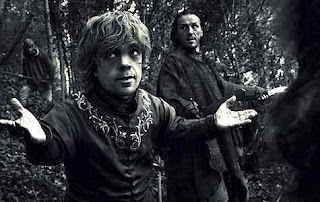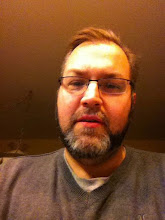It's been a while since I've done a year in review post and I thought that it might be a good time to do one. Sure there's five days left in the year but writing this now is better than me scrambling to write it later in the week. After a flourishing start to the year, I kind of petered out with posts in this space, which is kind of how the year went. I just had nothing interesting to share. At least that's the way that I felt. I thought my posts earlier this year were pretty good, yet they never really got the views that I hoped. I think that feeling may have influenced my sharing here because it was like yelling out into the void. And maybe that's okay.
2024 was a weird year because of reasons. I'm going to focus strictly on my reading and writing in this space, let's just leave it at that.
I've been in a horrible reading slump. I've only read 35 books this year. That's the lowest total in a long, long time. It's certainly a long way from years when I read 150 books in a year. I just haven't been investing the time or energy into reading that I should and that's been reflective in my writing, which I'll get to in a little bit. The number that alarms me most is that I only read 11 novels last year. That's crazy to me. That's less than one novel a month. Granted, some were some monster books but that's no excuse. I'm going to rectify that in the coming year. I intend to really embed myself with some big book epic fantasy in the coming year.
I recently restarted the WHEEL OF TIME. I had gotten about half way through WINTER'S HEART and had put is aside months and months ago. I realized that it had been over 20 years since I last read the first book, so I decided to start over. I'm glad I did. Next I want to check out Tad Williams, JV Jones and Brandon Sanderson. It's likely that my book count next year won't be as robust as other years as well, but for different reasons. I also want to shore up on some middle grade reading so I can research that voice for my own writing (we'll get to that). There's also a part of me that wants to check out this whole "romantasy" thing, though I'm likely going to audiobook most of that. I'm going to read very promiscuously this year. I'm not ready to put a number on it yet but maybe 55? We'll see. I'll decide when Goodreads puts up its Reading Challenge.
As for writing, I had a very interesting year of writing. I set a goal of 500 hours of writing for the year and I'm awfully close to hitting that number, though it's more and more likely that I'm not going to hit it. I'm not that bummed out about it because I still managed to get a lot done.
I floundered a bit at the beginning of the year, a continuation of the last few months of 2023 but then I did a project with my classes at school that sparked me, leading to an unforeseen middle grade project titled PIECE OF NIGHT. Based on my obsession with the "kids on bikes" trope, I wrote like a maniac. It took over and fueled the late Winter and early Spring. I queried it and despite a few nibbles here and there, it never grabbed a hold of anyone. I don't view it as dead, just dormant for now.
This energy led into a thorough rewrite of THE LOST SCIONS that I whittled down to 85k...that's a long way from the 119k it once was. I'm not completely happy with said rewrite. I feel that my obsession with getting it down to the 85k range really butchered the entire third act. I really like the story and even though I've been working and kneading this story for YEARS, I think it might be worth another pass to fix that third act. Maybe just rewrite the third act completely on its own.
I struggled in the Fall to find my footing. I had ideas for new projects, but none of them really grabbed me. I mean in the last year and a half I've plotted out not one but two "YA-adjacent" epic fantasy ideas that look pretty good on paper but they just felt like more of the same and I kept thinking of that definition of insanity: doing the same thing over and over again while expecting a different result. That's where I felt like I was.
Around Thanksgiving time, I sat down and started brainstorming ideas about my "what's next." I felt like I was wasting time and that wouldn't do. Two ideas coalesced in my mind, neither of them completely clear but close enough for me to set ideas on paper. One was a middle grade idea that scratched my "boy on a quest"/ kids on bikes itch and the other was a fantasy idea based on something I read about how editors aren't looking at fantasy without a strong romantic element (don't talk to me about following trends, I have thoughts on that but I'm not ready to share them.).
I sketched out the basics of each idea and the "boy on a quest" idea spoke to me. Plus, I didn't need to study the genre as much as I did for the "romantasy" idea that's kicking around in my head. I knew I needed a good McGuffin and literally took a page in my notebook and wrote down the following:
It only took three choices to get to the one I knew was the right answer. Inspired partially by the BOB'S BURGERS episode "Gene's Christmas Break," I felt like I hit the mark. (I have to write about how much Gene-centric episodes of that show inspire me.) And I was off and running. After the typical start and stops that usually accompany me starting a new project, on December 6th I had a half day from school and spent much of the afternoon loosely plotting out the story. I relied heavily on Save The Cat and then took off. I'm past the halfway point and really happy with where it's going. And I'm making good time on it.
I've put a lot of thought into how I want to proceed, though I don't want to commit to too much right now even though I have some thoughts. I know that in addition to the fantasy idea, I want to do a rewrite/revision of THE GIRL IN THE PICTURE (I still believe that's some of my best writing) and take another look at THE LOST SCIONS. I just have to figure out what order I'm going to take on these various projects. I think I can maintain the energy and enthusiasm for the year. I'm not going to go too crazy though I have some ambition this year, so I'll say my goal is 550, though I'd like to get more. That's about an hour and a half a day. After a couple of bad writing years, this last year felt good and I'm hoping to continue the trend. I'm not going to make any publishing predictions this year, all I can control is the writing. And I intend to do that in 2025.






.jpg)











